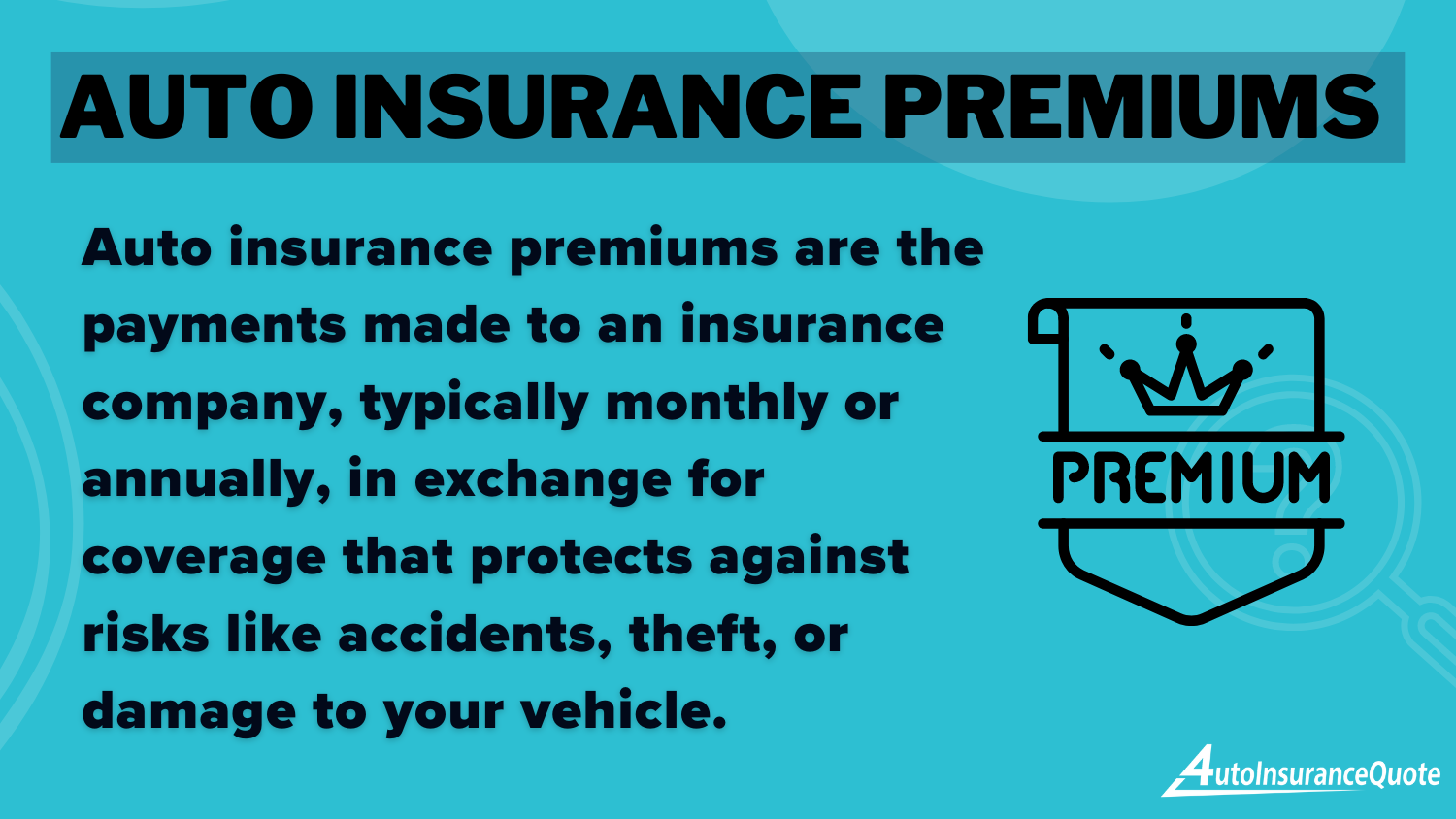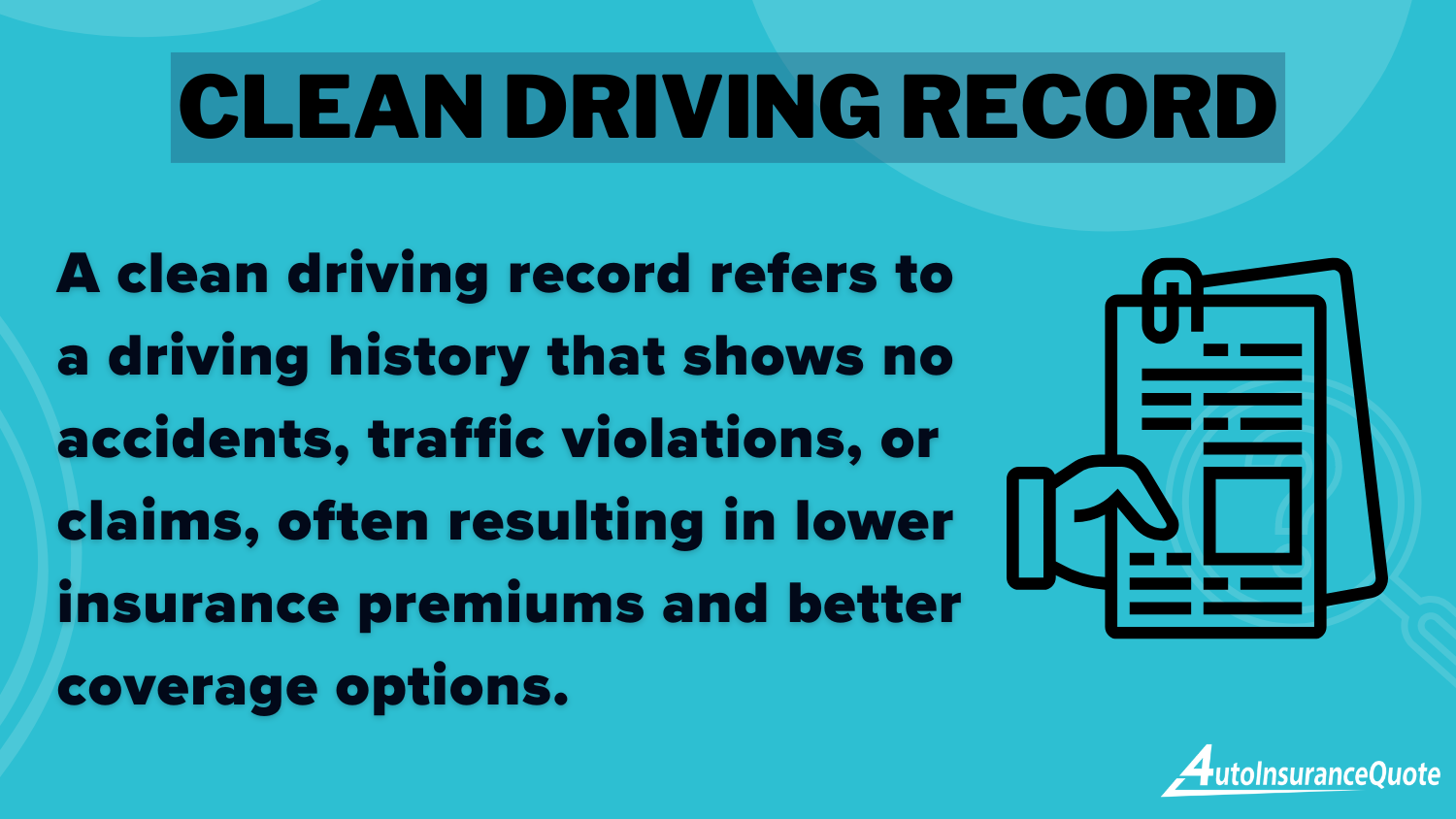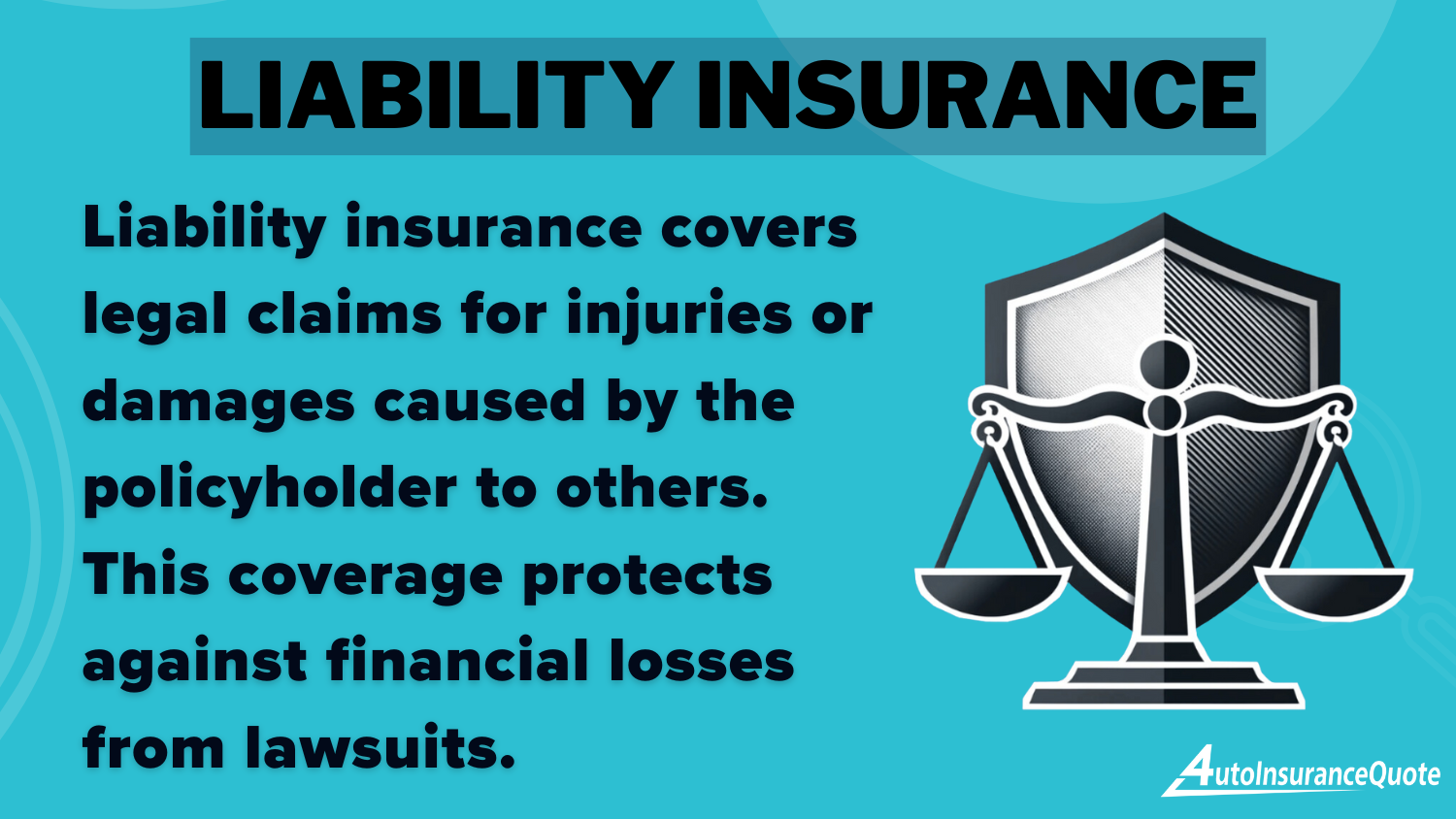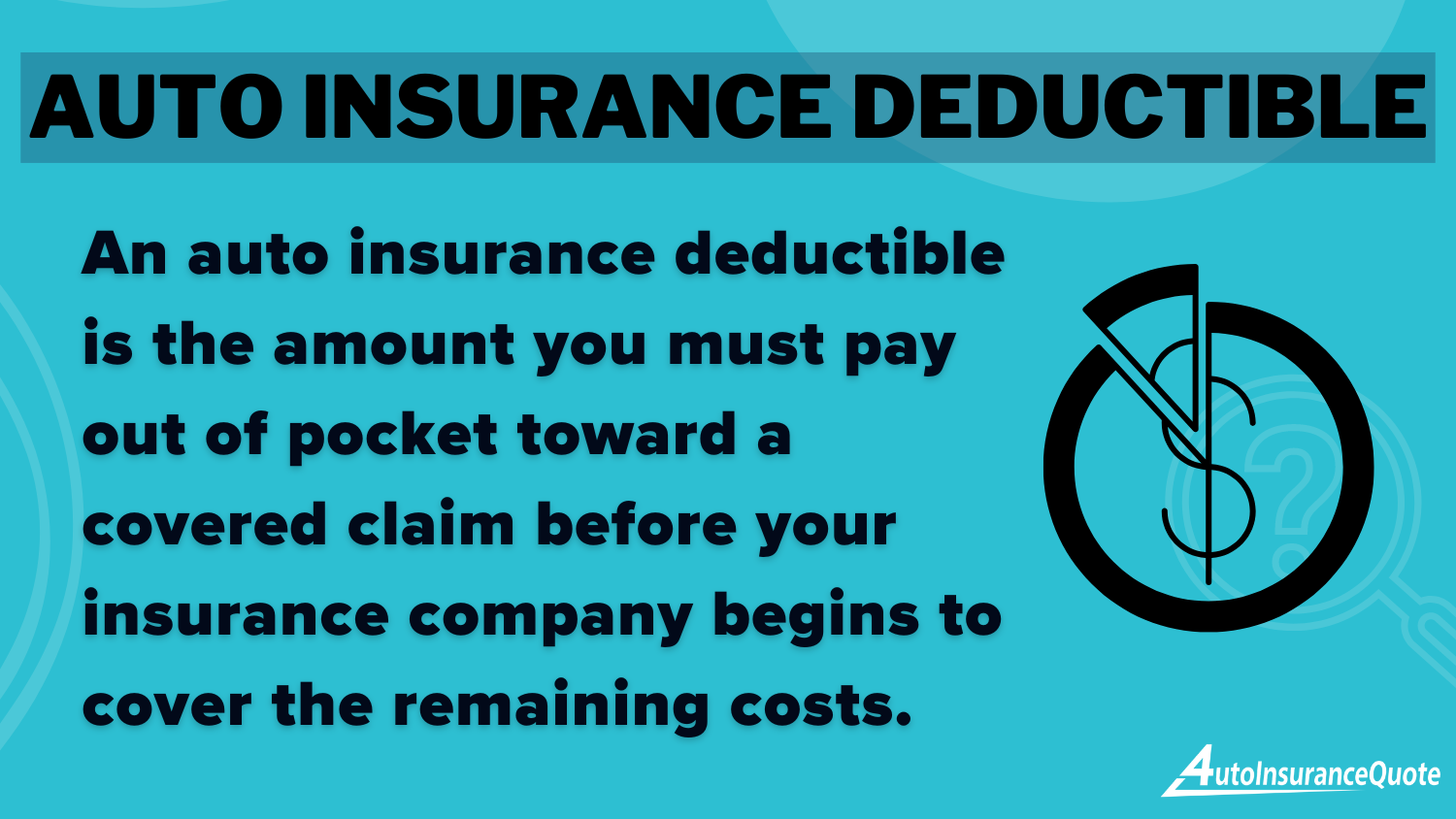Auto Insurance Premiums in 2025 (Insurance Cost Explained)
Auto insurance premiums vary significantly based on vehicle type, location, and driving history. Savings of up to 20% on insurance premiums are possible, with some plans starting as low as $110/month. Consider the options available, which can lead to much lower premiums while providing the needed coverage for peace of mind.

Free Car Insurance Comparison
Compare Quotes From Top Companies and Save
Secured with SHA-256 Encryption
Zach Fagiano
Licensed Insurance Broker
Zach Fagiano has been in the insurance industry for over 10 years, specializing in property and casualty and risk management consulting. He started out specializing in small businesses and moved up to large commercial real estate risks. During that time, he acquired property & casualty, life & health, and surplus lines brokers licenses. He’s now the Senior Vice President overseeing globa...
Licensed Insurance Broker
UPDATED: Dec 18, 2024
It’s all about you. We want to help you make the right coverage choices.
Advertiser Disclosure: We strive to help you make confident auto insurance decisions. Comparison shopping should be easy. We are not affiliated with any one auto insurance provider and cannot guarantee quotes from any single provider.
Our insurance industry partnerships don’t influence our content. Our opinions are our own. To compare quotes from many different companies please enter your ZIP code on this page to use the free quote tool. The more quotes you compare, the more chances to save.
Editorial Guidelines: We are a free online resource for anyone interested in learning more about auto insurance. Our goal is to be an objective, third-party resource for everything auto insurance related. We update our site regularly, and all content is reviewed by auto insurance experts.
UPDATED: Dec 18, 2024
It’s all about you. We want to help you make the right coverage choices.
Advertiser Disclosure: We strive to help you make confident auto insurance decisions. Comparison shopping should be easy. We are not affiliated with any one auto insurance provider and cannot guarantee quotes from any single provider.
Our insurance industry partnerships don’t influence our content. Our opinions are our own. To compare quotes from many different companies please enter your ZIP code on this page to use the free quote tool. The more quotes you compare, the more chances to save.
On This Page
Several factors affect your auto insurance premium, such as driving records, types of vehicles, and places. Some of these factors directly affect your policy cost; hence, you should learn how these factors affect the cost of insurance.

Understanding how car insurance premiums are determined involves sampling and evaluating various options based on how your specific conditions might impact the costs.
This article has specified the multiple factors that help determine auto insurance premiums and some ideas about how to get such affordable full coverage auto insurance.
Start comparing total coverage auto insurance rates by entering your ZIP code here.
- Auto insurance premiums depend on driving history and location
- Vehicle type and driving record impact your auto insurance premium
- Comparing policies helps secure the best premium for coverage needs
Auto Insurance Premium Definition
An auto insurance premium is the amount you pay for car insurance, either monthly or annually. Insurers determine your premium based on factors such as your coverage level, age, driving record, and other risk factors.
The higher the risk of insuring your vehicle, the higher your premium will be. Premiums vary due to age, driving history, credit score, and the types of auto insurance coverage chosen. Generally, a driver with a spotless driving record and basic coverage spends less on premiums than one who opts for full coverage insurance.
These factors can help determine the price of standard coverage and clarify the concept of understanding car insurance premiums, including whether they pay monthly or yearly.
You can adjust your deductible, shop for better rates, or take a defensive driving course to lower your premiums. Researching and comparing policies will help you find the best coverage at an affordable price.
Compare over 200 auto insurance companies at once!
Secured with SHA-256 Encryption
Calculating Auto Insurance Premiums
Motor insurance premiums vary between insurance companies as they consider several factors that reflect the risk of insuring a driver and their vehicle. Insurers use these factors to assess and determine the cost of coverage.
Personal Details
Insurance companies consider personal details like age, sex, and marital status when determining rates. Age affects auto insurance rates, as individuals under 25 are typically regarded as high-risk drivers and usually pay more than older drivers with more experience.
Credit Score
Credit score and auto insurance quotes are linked, with insurers using your credit score to assess risk. A higher score often results in lower premiums, while a lower score can lead to higher rates. Maintaining a good credit score can help you secure better auto insurance quotes.
Driving Experience and Record
Your driving history plays a significant role in setting your rates. A DUI affects your auto insurance rates significantly, as violations like DUI/DWI or reckless driving make you a higher-risk driver, leading to higher premiums. On the other hand, a clean driving record usually results in lower rates.
Car Type
The vehicle make and model affect your auto insurance rates. Expensive automobiles, specifically sports and luxurious cars, attract higher premiums because of the costs of repairs and replacements. Those cars tend to have lower premiums: affordable or practical vehicles.
Type of Auto Insurance Coverage
The coverage you select directly influences your premiums. Comprehensive coverage usually costs more than basic liability auto insurance coverage. The broader the coverage, the more expensive it will likely be.
Auto Insurance Premium Rates by Provider & Coverage Level| Insurance Company | Minimum Coverage | Full Coverage |
|---|---|---|
| $140 | $280 | |
| $125 | $255 | |
| $145 | $275 | |
| $120 | $250 | |
 | $160 | $300 |
 | $130 | $260 |
| $150 | $290 | |
| $135 | $265 | |
| $135 | $270 | |
| $110 | $240 |
Usually, a high deductible comes with lower premiums, but you will pay more out-of-pocket at the time of claim.
Discounts
Many insurers offer affordable auto insurance discounts to drivers who meet specific criteria. Generally, insurers provide discounts to drivers who take proactive steps, such as completing defensive driving courses or maintaining clean driving records. These discounts help reduce premiums and make coverage more affordable.
Deductible Amount
The auto insurance deductible is the amount you must pay before your insurance policy begins. Opting for a higher deductible typically lowers your premiums, helping you negotiate lower auto insurance rates, but you’ll need to pay more upfront if you file a claim.
Drivers on the Policy
The number of drivers listed on your policy can also impact your premiums. Insurers may offer discounts if you add multiple drivers to your policy, lowering costs for each person covered, which can affect the average cost of auto insurance.
Understanding these factors helps you make informed decisions about coverage and manage your premium. It can also guide you in selecting the best policy to save on your car insurance premium while maintaining the right level of coverage.
Difference Between a Quote and a Premium
What is a car insurance premium, and how do they differ from insurance quotes? An auto insurance quote is a company’s estimated cost based on your circumstances. Before providing a personalized quote, insurers will analyze factors such as your age, driving history, credit score, and car type.
You can get quotes online without committing to a policy, but insurance quotes usually don’t include any taxes or fees associated with purchasing the policy. This is why your premium could be higher than your quote. Premiums refer to the amount paid for insurance coverage over a certain period.
When you decide to purchase an auto insurance policy, your price will be based on your circumstances. It can change depending on other factors like auto insurance deductibles or additional drivers added to the policy. The premium amount must be paid at regular intervals throughout the duration of the policy to maintain coverage.
A Guide to Auto Insurance Premiums and Deductibles
There are two essential words related to automobile insurance: premium and deductible. Insurance quotes are estimated based on the customer’s age, driving history, credit score, and vehicle type.
Jeffrey Manola Licensed Insurance Agent
Insurance quotes give you an idea of what an auto insurance policy looks like in terms of potential coverage costs, but it’s not the final price you’ll pay. You can quickly get a quote online without committing to a policy.
However, remember that quotes may not include additional fees, taxes, or other charges that could impact the final cost. As a result, your actual premium—the amount you pay to maintain your coverage—could be higher than the initial quote.
Premiums are typically paid monthly or annually, depending on your chosen plan. Once you decide to purchase a policy, several factors will determine your premium, such as your unique circumstances, the different types of auto insurance coverage levels you select, and the amount of your deductible.
The deductible is the amount you must pay out of pocket before your insurer begins to cover a claim. Generally, higher deductibles result in lower premiums, while lower deductibles lead to higher premiums. To keep your coverage active, you must pay the premium regularly throughout the policy period.
Understanding the premium and deductible will help you make more informed decisions about your auto insurance policy and manage your costs effectively.
Compare over 200 auto insurance companies at once!
Secured with SHA-256 Encryption
Understanding Auto Insurance Limits
Auto insurance limits define the maximum amount your insurance company will pay for a covered claim. These limits depend on the type of coverage you choose and the state you live in. It’s crucial to understand these limits to ensure you have adequate protection.
Each state has minimum coverage requirements, but meeting only the legal minimum may not offer sufficient protection. If your policy’s limits are too low and a claim exceeds those limits, you could be left paying the difference out of pocket.
Most auto insurance policies also have specific limits for different types of coverage. These may include:
- Bodily Injury Liability: This covers medical expenses and legal fees for injuries you cause to others in an accident.
- Property Damage Liability: Affordable property damage liability (PDL) auto insurance coverage pays for damages to another person’s property—such as their vehicle, home, or other structures—caused by your actions in an accident.
- Comprehensive and Collision Coverage: These limits refer to the total amount an insurer will pay for damage to your vehicle, whether from an accident, theft, or natural disaster. Affordable, comprehensive auto insurance coverage ensures broad protection at a great value.
These limits determine how much your insurer will pay for each claim, so knowing them is key to avoiding unexpected costs. The right coverage protects against most financial risks, including legal expenses incurred by a serious accident. One should always check the policy limits and the total policy premium against one’s needs to ensure they are sufficient for protection.
Auto Insurance Premium Payment Options
The frequency of auto insurance premium payments varies based on your selected policy. Whether you pay annually, bi-annually, quarterly, or monthly, it can impact your typical car insurance premium cost.
Annual payments are often the most cost-effective option, as they typically come with lower overall costs, and you only need to make one payment per year. This can help reduce the administrative fees often accompanying more frequent payment plans, regardless of whether car insurance premiums are monthly or yearly.
Many insurers provide alternative payment options if an annual payment doesn’t fit your budget. Bi-annual and quarterly payments spread the cost throughout the year, making managing it easier.
Monthly payments can take the pressure off going through the complete process and allow one to learn all its benefits before fully paying it off. This distribution of the cost into smaller monthly portions can be helpful when exploring auto insurance discounts for affordable coverage. The full payment becomes easy at the end of each period under an annualized plan.
Many insurance companies give the advantage of discounts by paying premiums on annual terms rather than monthly because carrying these monthly payments may also load with a little extra charge. Thus, comparing different plan payments and quotes is always suitable for identifying which plan will suit you best and save you money in the long run.
Factors Influencing the Increase of Auto Insurance Premiums
Auto insurance premiums can increase for various reasons, often tied to personal circumstances, driving history, or demographic factors. Understanding these factors can help you manage your costs effectively.
One common reason for a premium hike is a change in your situation. Moving into another area, especially with high traffic or crime, will get insurers to reevaluate the risk and adjust the premiums accordingly. Similarly, life events, such as marriage, affect your risk profile and, therefore, your rates.
Report Card: Auto Insurance Premiums| Category | Grade | Explanation |
|---|---|---|
| Traffic Density | A- | Low traffic congestion compared to cities. |
| Weather-Related Risk | B+ | Moderate weather-related claims frequency. |
| Average Claim Size | B | Claims are slightly above national average. |
| Vehicle Theft Rate | B- | Higher-than-average vehicle theft incidents. |
| Uninsured Drivers Rate | C+ | Significant percentage of uninsured drivers. |
Your driving history will affect your premiums; if you have an accident or even an infraction, such as speeding, insurers will automatically categorize you as a higher risk and may increase your premium.
The higher the number of incidents recorded against you, the more likely you will need to pay a higher premium. However, you can still find affordable high-risk auto insurance options that may help lower costs, even if your driving record isn’t perfect.
Age is another key factor. Younger drivers, particularly those under 25, often face higher premiums because they are less experienced and more likely to file claims. Over time, as drivers establish a history of safe driving, they typically enjoy lower rates.
When your rates increase, there are several steps you can take to lower them. These include comparing all businesses, considering the discounts you qualify for, and raising your deductible. It’s also about getting the coverage you need at lower rates.
Compare over 200 auto insurance companies at once!
Secured with SHA-256 Encryption
Ways to Reduce Auto Insurance Premiums
Since driving without auto insurance is illegal, here are some practical tips on how to calculate car insurance premium and save on auto premiums to secure an affordable car insurance policy:
Shop Around for Different Quotes
Compare auto insurance quotes from multiple insurers is one of the most effective ways to find a lower premium. Even though they cover the same things, other providers may have hugely different prices.
For example, a customer might offered a policy for $1,000 a year, but another insurer could provide the same policy for $800. Researching and comparing options helps you understand the meaning of total car insurance premiums and find the best deal for your needs.
Ask About Discounts
Many insurers offer discounts to help lower premiums. Combining insurance policies can provide multi-policy discounts, while students with good grades may qualify for reduced rates.
Safe driving habits or telematics usage can earn discounts, and long-term customers might receive loyalty rewards. Ask about seasonal promotions or other special offers to maximize savings.
Take a Defensive Driving Course
Completing a defensive driving course can reduce your risk profile and lower your premiums. Insurers often view participants in these programs as safer drivers, which can translate into good driver auto insurance discounts. In some cases, completing the course helps remove minor violations from your record, reducing your rates.
Increase Your Deductible
A higher deductible, the amount of money you will have to pay before the insurance covers, is a good way of reducing your monthly or annual premiums.
You take on a higher part of the risk for the claims; therefore, the insurer perceives a lower risk and often reduces the rate. But here, you must also be careful to ensure you can afford the higher deductible in case of a claim.
By taking these steps and considering changes like increasing your deductible, you can significantly reduce your costs while maintaining the coverage you need. This approach can help you secure affordable comprehensive auto insurance coverage without sacrificing essential protection.
Managing Auto Insurance Premiums
Factors such as the driver’s age, driving history, location, vehicle type, and the level of coverage chosen influence auto insurance premiums. Insurers assess these elements to evaluate risk and determine the premium amount.
A driver can reduce the cost of premiums by maintaining a clean driving record, increasing the deductibles, bundling policies, or choosing vehicles with enhanced safety features. Calculating car insurance premiums can also help you find the most effective ways to lower costs.
However, it’s imperative to ensure one reviews and adjusts the coverage, as changes like moving to a new place or buying a new car require household effects management.
Discounts for good driving, low-mileage auto insurance discounts, or advanced safety features can help reduce premiums. By staying informed and proactive, drivers can secure the right coverage while managing costs and understanding what the premium on car insurance means.
Protect your vehicle at the best prices by entering your ZIP code into our free auto insurance quote comparison tool.
Frequently Asked Questions
Can I pay insurance premiums for someone else?
You can pay insurance premiums for someone else if the insurance company allows it. Many insurers accept third-party payments, although you might need to provide authorization or additional details to complete the payment.
What is the basic premium in insurance?
The basic premium represents the initial amount an insurer charges to provide coverage under a policy, factoring in the insured risk, administrative costs, and profit margin.
Start saving on your auto insurance by entering your ZIP code and comparing quotes.
Which category of drivers pays the most in insurance premiums?
Young drivers under 25 and those with poor records, like DUIs or multiple accidents, face high premiums and may require assigned risk auto insurance. How are car insurance premiums calculated? These factors lead to higher costs for such individuals.
How are auto insurance premiums calculated?
Insurance companies calculate premiums based on risk, considering your age, location, driving history, vehicle type, coverage, deductibles, and discounts. The type of coverage and deductibles you choose, along with eligible discounts, also influence your premium.
Does my car need an insurance premium?
Your car may need premium or comprehensive coverage if it is new, expensive, or costly. Premium coverage provides essential protection if you lack the financial means to cover potential damages out-of-pocket. Some legal requirements and lender stipulations may also necessitate such coverage.
Which factors affect car insurance premiums?
Several factors influence car insurance premiums, including age, driving record, vehicle type, location, coverage, and deductible. Urban drivers or those with accidents often pay more. Consider these factors to find affordable instant auto insurance quotes.
How long is a premium period?
The premium period lasts as long as the time frame covered by a single payment. Standard options include monthly, quarterly, semi-annual, or annual periods, depending on your chosen policy and payment schedule.
What is the minimum premium in insurance?
The insurer defines a minimum premium as the lowest amount they charge to issue a policy, covering administrative costs and the risk of insuring the driver. It’s also essential to understand the extent of protection your policy provides.
What does an annual premium mean in car insurance?
Understanding how auto insurance works involves knowing that the annual premium is the total amount paid to maintain coverage for a year. Depending on the policy terms, this can be paid either upfront or in installments.
What is the purpose of insurance?
Insurance aims to provide financial protection against unexpected losses by spreading risk across many policyholders, offering peace of mind and stability in cases of accidents, illness, or property damage. The car insurance premium definition helps explain how this protection applies specifically to your vehicle.
Explore your auto insurance options by entering your ZIP code into our free comparison tool today.
Compare over 200 auto insurance companies at once!
Secured with SHA-256 Encryption
Zach Fagiano
Licensed Insurance Broker
Zach Fagiano has been in the insurance industry for over 10 years, specializing in property and casualty and risk management consulting. He started out specializing in small businesses and moved up to large commercial real estate risks. During that time, he acquired property & casualty, life & health, and surplus lines brokers licenses. He’s now the Senior Vice President overseeing globa...
Licensed Insurance Broker
Editorial Guidelines: We are a free online resource for anyone interested in learning more about auto insurance. Our goal is to be an objective, third-party resource for everything auto insurance related. We update our site regularly, and all content is reviewed by auto insurance experts.


